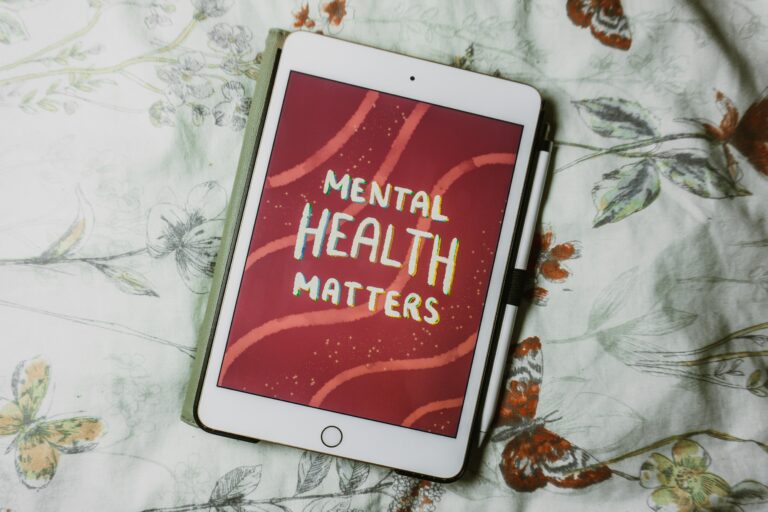Understanding Mental Health: Why It Matters and How to Prioritize It in Your Life
Discover why mental health is crucial for your overall well-being and practical ways to improve it. Learn about proven strategies, backed by research, to enhance your mental well-being.
The Importance of Mental Health and How to Prioritize It
In recent years, there has been a growing awareness of mental health and its impact on our daily lives. Yet, despite this increased focus, many people still struggle with understanding what mental health truly means and how to improve it. In this guide, we’ll explore why mental health is so important, the consequences of neglecting it, and practical strategies to help you prioritize your mental well-being.
1. What Is Mental Health and Why Is It Important?
Mental health encompasses our emotional, psychological, and social well-being. It influences how we think, feel, and behave, and also determines how we handle stress, relate to others, and make choices. According to the World Health Organization (WHO), good mental health is essential for personal well-being, family and interpersonal relationships, and the ability to contribute to society .
However, mental health challenges are becoming more common, with reports showing that nearly 1 in 5 adults in the U.S. experience mental illness each year . These conditions can affect anyone, regardless of age, gender, or background.
Research Link: Read more on the WHO’s mental health fact sheet.
2. Signs of Poor Mental Health
Recognizing the signs of declining mental health is crucial for early intervention. Here are some common indicators:
- Persistent feelings of sadness or hopelessness
- Withdrawal from social activities
- Difficulty concentrating or making decisions
- Changes in appetite or sleep patterns
- Physical symptoms like fatigue, headaches, or muscle tension
If you or someone you know is experiencing these symptoms, it’s essential to seek help. According to the American Psychological Association, early intervention can significantly improve outcomes for those with mental health conditions .
Hyperlink: Learn more about recognizing the early signs of mental health issues.
3. How Mental Health Affects Physical Health
Many people don’t realize that mental health and physical health are deeply interconnected. Chronic stress, for instance, has been linked to heart disease, weakened immune function, and other physical health problems. A study published in the Lancet Psychiatry Journal found that people with severe mental illness are at a higher risk of developing physical health conditions like diabetes and cardiovascular disease .
By prioritizing your mental health, you can improve not only your emotional well-being but also your physical health.
4. Proven Strategies to Improve Mental Health
There are several evidence-based strategies you can use to enhance your mental well-being:
a. Practice Mindfulness and Meditation
Mindfulness practices like meditation have been shown to reduce symptoms of anxiety and depression. According to a study by Harvard Medical School, just 10 minutes of meditation daily can help reduce stress and improve focus .
- Related Article: The Benefits of Mindful Reading
b. Engage in Regular Physical Activity
Exercise is not only good for your body but also your mind. Regular physical activity releases endorphins, which are natural mood elevators. The National Institute of Mental Health suggests that exercising for at least 30 minutes, five times a week, can significantly reduce symptoms of depression .
c. Limit Your Screen Time
Excessive screen time, especially on social media, has been linked to higher levels of anxiety and depression. According to research published in JAMA Psychiatry, reducing social media use can lead to better mental health outcomes, particularly among young adults .
Read more about the impact of social media on mental health.
5. Building a Support System
Social support plays a crucial role in maintaining good mental health. According to Psychology Today, having strong relationships with friends and family can help you navigate difficult times and reduce stress .
- Consider joining a support group or talking to a therapist if you’re struggling.
- Reach out to loved ones and let them know how you’re feeling. Sometimes, just talking to someone can make a huge difference.
6. The Role of Nutrition in Mental Health
What you eat can also affect your mental health. Diets high in processed foods and sugars can worsen symptoms of anxiety and depression. In contrast, a balanced diet rich in vegetables, fruits, and whole grains has been shown to boost mood and cognitive function .
External Resource: For more information on how diet impacts mental health, visit the Harvard T.H. Chan School of Public Health.
7. How to Incorporate Mental Health Practices Into Your Life
If you’re looking to improve your mental health, start small. Incorporating daily habits like journaling, practicing gratitude, or even reading a few pages of a book can have a significant impact over time.
Quick Tips to Get Started
- Set aside time for self-care: Whether it’s a relaxing bath, a walk in nature, or listening to your favorite podcast.
- Prioritize sleep: Aim for at least 7-8 hours of quality sleep per night.
- Try therapy or counseling: Sometimes, a professional perspective can help you navigate complex emotions.
Conclusion: Your Mental Health Matters
Prioritizing your mental health is not a luxury—it’s a necessity. By adopting small, consistent habits, you can significantly improve your mental well-being and enjoy a more fulfilling life. Remember, it’s okay to ask for help if you need it. Take that first step towards a healthier mind today.







2 Comments